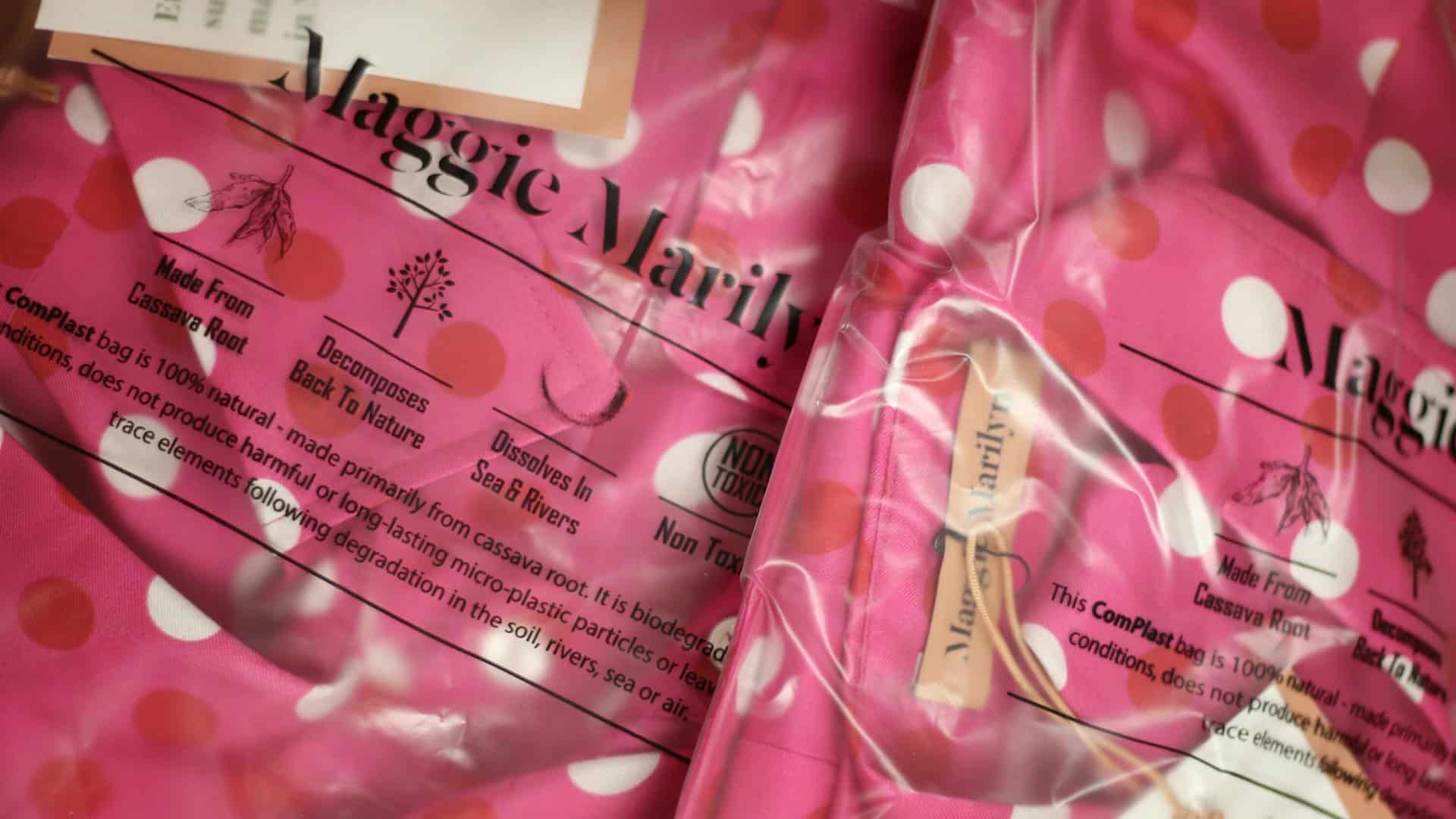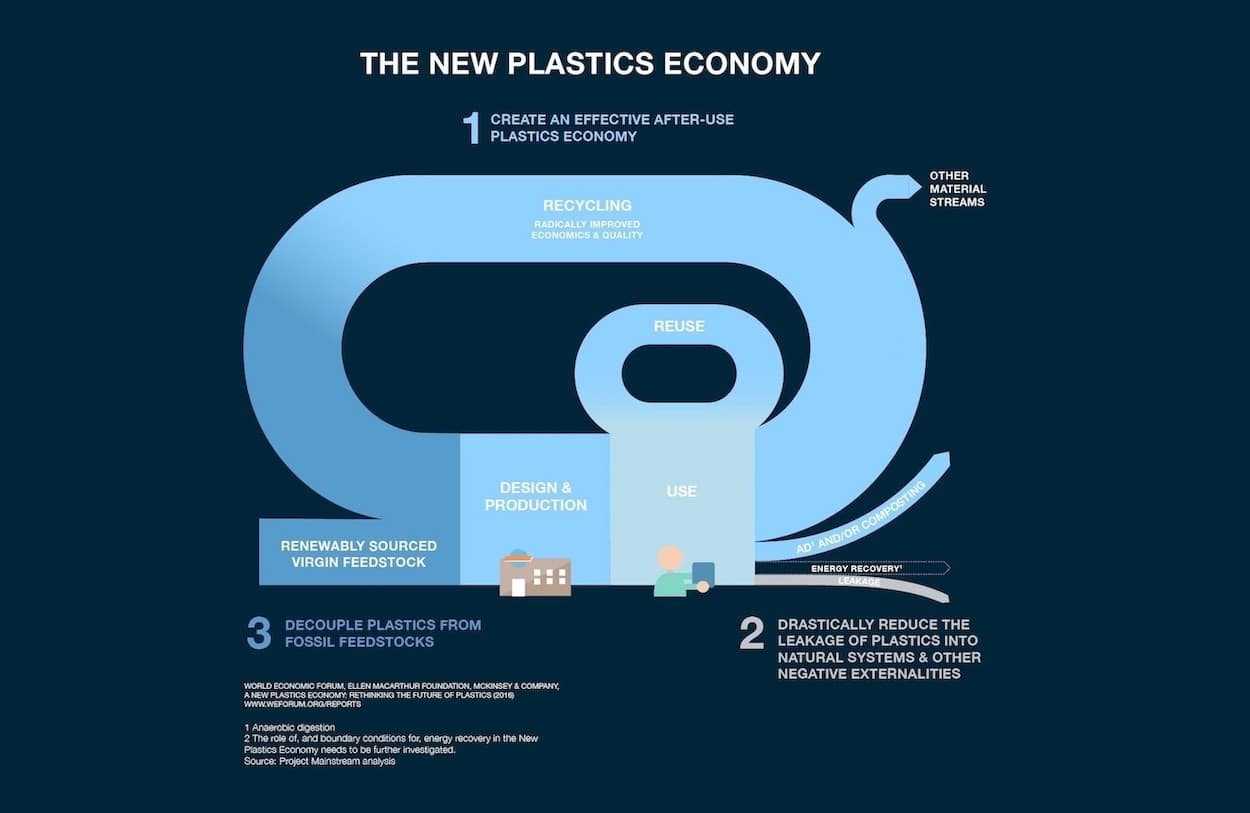How do you know if ‘green’ disposable plastic products, marked bioplastic, biodegradable, or compostable are actually a good choice for planet & people? All the different terms are confusing. We need clarity. And we need it fast.
We all know that plastic is made of artificially created chemicals that don’t belong in our world. Plus they don’t mix well with nature. These plastics are a big source of pollution, in our water and food, creating toxic health hazards for communities as well as killing marine wildlife.
We all know that plastic is made of artificially created chemicals that don’t belong in our world. Plus they don’t mix well with nature. These plastics are a big source of pollution, in our water and food, creating toxic health hazards for communities as well as killing marine wildlife.

The Solution To Plastic Poly-bags
Maggie Marilyn, a sustainable fashion brand from New Zealand carbon neutral mailer bags, made from 80% calcium carbonate sourced from quarry waste and 20% non-toxic recycled resin (HDPE). These ØPACK bags, created by The Better Packaging Company, waterproof, durable, anti-bacterial and can be reused again and again. Maggie Marilyn explains:
“Some manufacturers of petroleum-based bags will add plant-based materials to the plastic and also claim these as “biodegradable”. A very frustrating piece of greenwashing!”
These bags production process uses renewable energy, zero water, no acid or bleaches while creating very little pollution. Maggie Marilyn encourages their customers to reuse these bags however at the end of their life they can be recycled with your soft plastics.

Recycling bio-based plastics
The volume of bio-based plastics is still too small for separation or separate collection. But hey, isn’t this just like electric cars? At first, nobody bought one because there was no charging point. But then, nobody is going to install charging stations if there are no electric cars… It's the same case with the recycling of bio-based plastics. It’s ultimately up to waste companies to break through that problem. Overall, it is expected that by 2027 the production of bio-based and biodegradable plastics will increase to over 3.5 million due to a strong development of polymers, such as polylactic acids (PLAs) and PHA (polyhydroxyalkanoates). Read more on this here.
Facilitate Consumers’ best behaviour
Collection and sorting, which starts at consumers and their behaviour, largely determine the (energy) efficiency of waste management systems. To facilitate consumers to choose the right route of disposal for packaging waste, pictograms can be used to indicate the preferred disposal route.

Six key points so that plastic never becomes waste
The New Plastics Economy (Ellen MacArthur Foundation) has defined six key points to catalyse change and shift towards a circular economy where plastic never becomes waste:
- Elimination of problematic or unnecessary plastic packaging through redesign, innovation, and new delivery models is a priority
- Reuse models are applied where relevant, reducing the need for single-use packaging
- All plastic packaging is 100% reusable, recyclable, or compostable
- All plastic packaging is reused, recycled (rPET), or composted in practice
- The use of plastic is fully decoupled from the consumption of finite resources
- All plastic packaging is free of hazardous chemicals, and the health, safety, and rights of all people involved are respected.
Do you want to go more in depth? Give us a call or learn more about circular business models in our Academy courses
